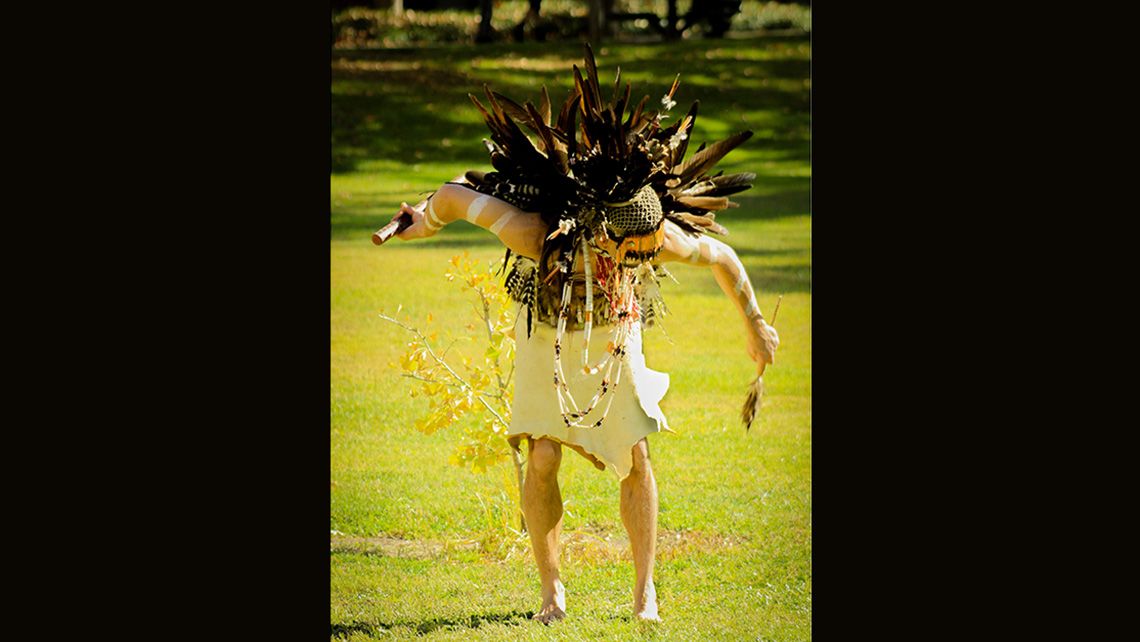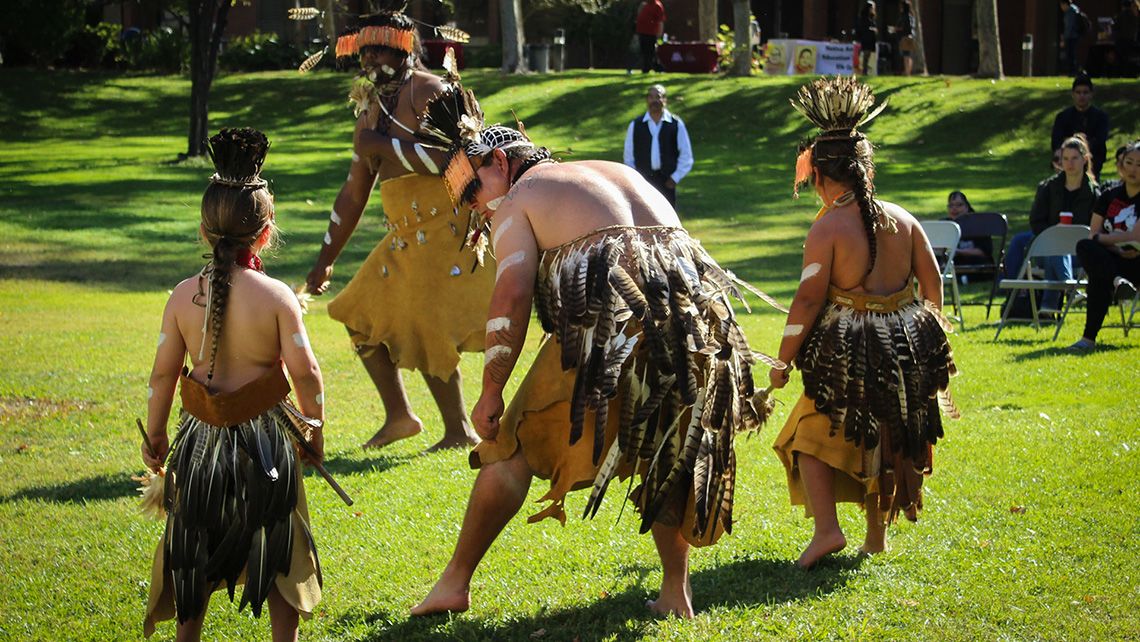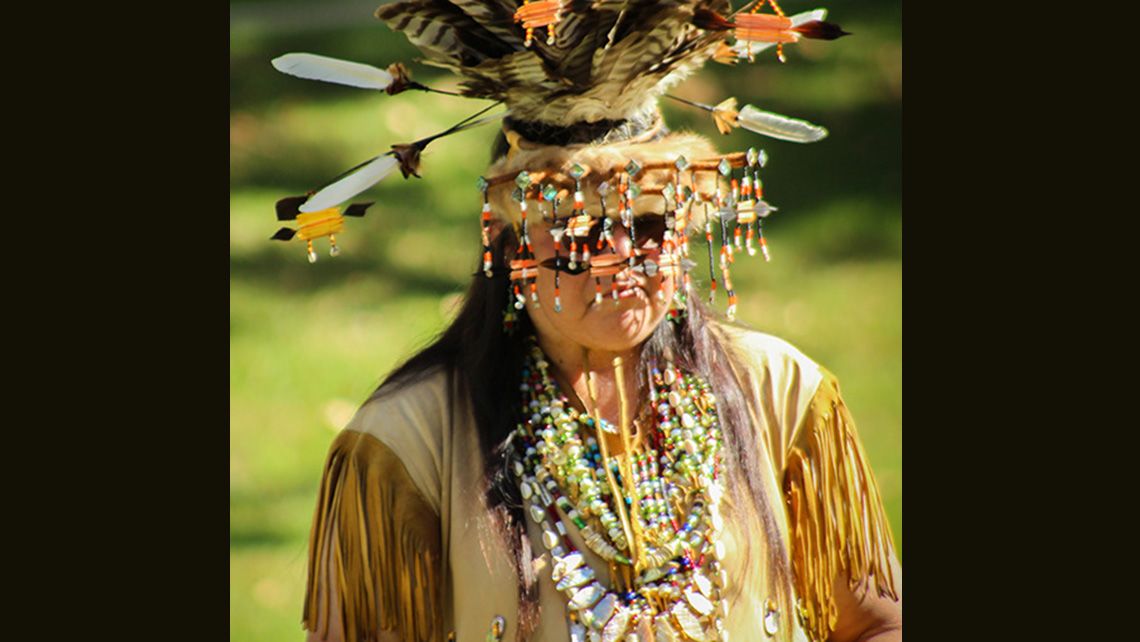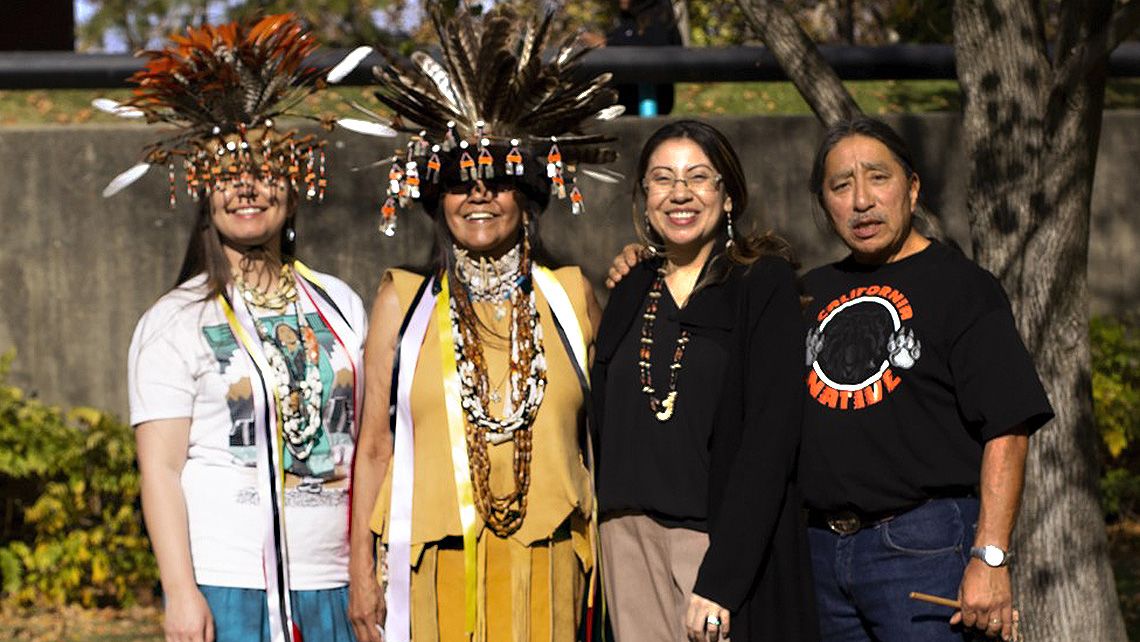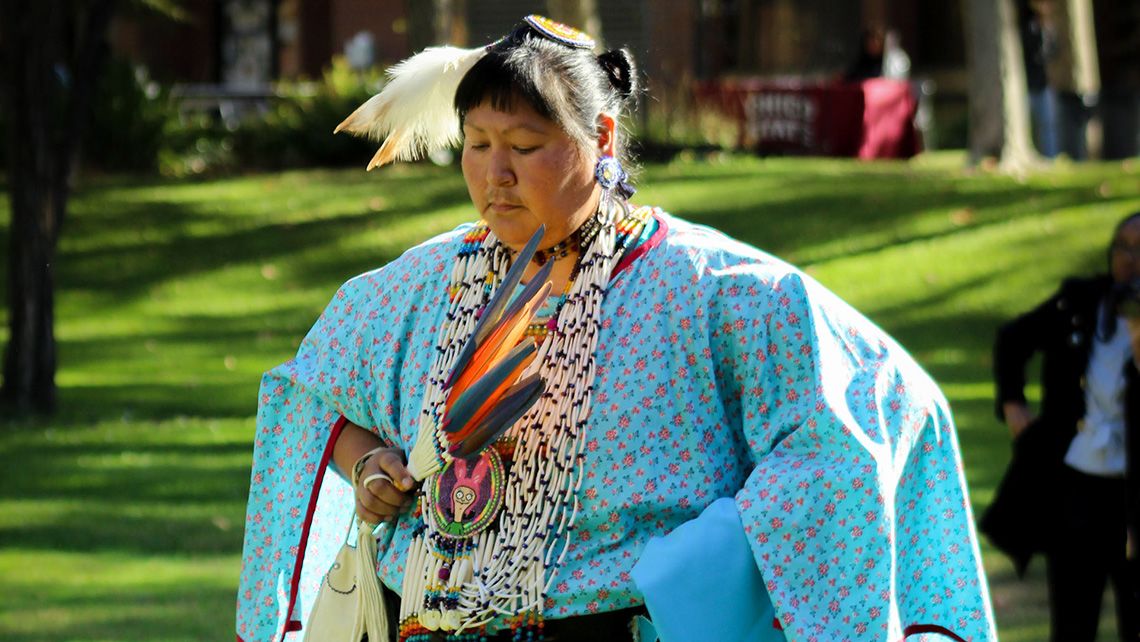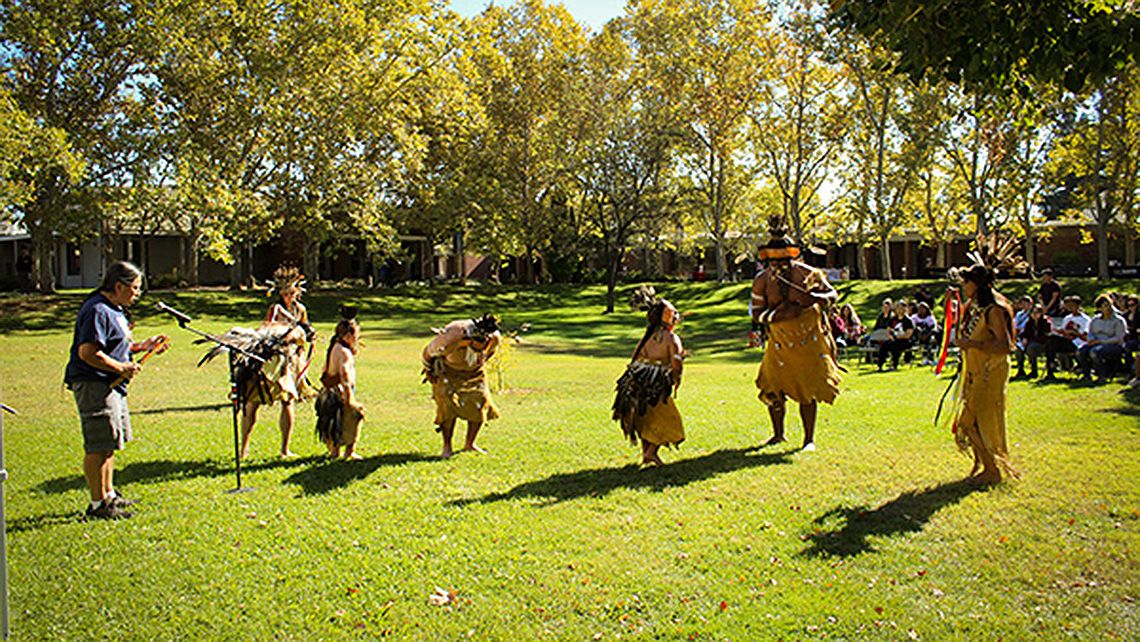CRC Honors the Miwok and Nisenan People
Promoting Education Through Respect
Cosumnes River College is committed to creating a campus environment that fosters diversity by actively educating our campus community in a variety of ways. We acknowledge that the problems of racism, sexism, classism, heterosexism, and other forms of oppression exist within our campus community and recognize that these problems cannot be faced in isolation from their broader social context. Our goal is to create an environment where all feel welcome and safe in their pursuit of higher education.
Acknowledging Cosumnes River College sits on the traditional home of the Miwok and Nisenan people is one step to ensuring we show respect to the Indigenous community who have lived on these lands for many centuries.
At its January 2020 meeting, the Cosumnes River College Participatory Governance Council approved the recommendation to formally adopt the use of a land acknowledgment statement that recognizes the original Indigenous people of the land where Cosumnes River College has been located for 50 years. Through this acknowledgment, Cosumnes River College is showing its respect and gratitude for Indigenous people and their enduring relationship to the land.
Understanding the history and culture of the Miwok and Nisenan people is the first step in acknowledging their ancestral rights to the land Cosumnes River College occupies. One of the best ways to foster a culture of acceptance and belonging is through education – both formal and informal. We cannot move forward as one campus community without mutual respect.
According to the California Department of Parks and Recreation, “The people who settled in this area many centuries ago are now referred to as the Northern Sierra Miwok. They established their villages alongside the rivers and streams of the Sierra Nevada from the Cosumnes River on the north to the Calaveras River on the south. Other Miwok groups lived to the west and south in California’s great central valley as far west as Mount Diablo and south as far as Yosemite National Park.”
Nisenan.org explains “The ancestral lands of the Nisenan people are situated in Northern California. The southern boundary of the territory begins below the Cosumnes River. From there, it runs east to Kyburz and includes both banks of the Sacramento River to the west. From Kyburz, the boundary winds its way north to Gold Lake then west along ridges and canyons to the south fork of the Feather River. From there, it moves southwest to the Sacred Mountain, 'Estom Yanim (Marysville Buttes) and finally, finds its way back down the Sacramento River.”
Wilton Rancheria, located in Elk Grove, is the local tribal agency providing resources and support to their members. The tribe is governed by the Executive Branch, Legislative Branch, and Judicial Branch. Their commitment to their members is wide reaching as they provide services related to cultural preservation, education, enrollment, health, housing, and Indian Child Welfare Development.
Visit Wilton Rancheria’s website to learn more about their commitment to their tribal members and local community.
Cosumnes River College is working with Wilton Rancheria to increase access and pathways for their members to enter CRC to obtain a certificate or degree.
We acknowledge the land currently occupied by Cosumnes River College as the traditional home of the Miwok and Nisenan people. These sovereign people have been caretakers of the area since time immemorial. The state of California is home to more than 110 Federally Recognized Indian Tribes, representing the most diverse set of tribal nations anywhere in the United States. Despite centuries of genocide and occupation, the Miwok and Nisenan people continue as vibrant and resilient federally recognized tribes, bands, and rancherias. The waters of the Sacramento, American, and Cosumnes Rivers have nourished Miwok and Nisenan tribal communities with cultural and dietary sustenance throughout time. ‘Cosumnes’ of Cosumnes River derives from the Plains Miwok language. Stemming from the words "kosumu," meaning salmon and "umne," meaning the place of, it translates as "The Place of the Salmon." Today, we celebrate our Miwok and Nisenan tribal neighbors as the ancestral stewards of this land and honor their sustained existence. It is with their blessing and continued guidance that Cosumnes River College seeks to provide an accessible, equitable, and principled institution of learning.
What is a Land Acknowledgment?
A Land Acknowledgment is a formal statement that recognizes and respects Indigenous Peoples as traditional stewards of this land and the enduring relationship that exists between Indigenous Peoples and their traditional territories.
Why do we recognize the land?
To recognize the land is an expression of gratitude and appreciation to those on whose territory you reside, and a way of honoring the Indigenous people who have been living and working on the land from time immemorial. It is important to understand the long-standing history that has brought you to reside on the land, and to seek to understand your place within that history. Land acknowledgements do not exist in a past tense or historical context: understanding of structural inequities is a current ongoing process, and we need to build our mindfulness of our present participation. It is also worth noting that acknowledging the land is Indigenous protocol.
Information from http://www.lspirg.org/knowtheland.
CRC's Native American Higher Education Resources (NAHER) promotes academic, personal, and career success to Native American students. Culture and education both play an intrinsic role in the development of life and what transpires to one reaching their full potential and career endeavors. NAHER resources and services focus on cultivating student success, developing personal wellbeing, and embracing culture for Native American students.
Visit Native American Higher Education Resources (NAHER) for more information.
We are affirming our commitment to equity by working together to eliminate systemic racism and opportunity gaps from our institution. The We Won’t Fall campaign is aimed at supporting our work toward equitable outcomes.
We have set 13 targets for the Fall semester and specific goals designed to improve the outcomes of Black/African American and Latinx students. Learn more about We Won’t Fall.
Documents
- Native American Cultural Setting and Context - report prepared for CRC by Solano Archaeological Services, October 2023
- Native American Cultural Overview and Setting - presentation slides


